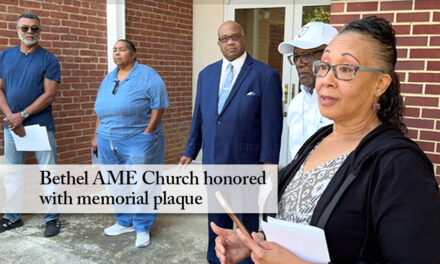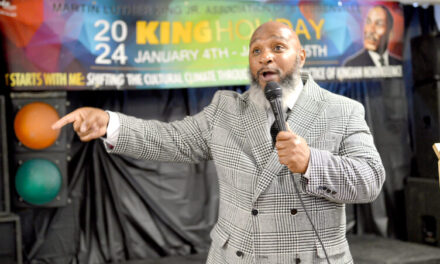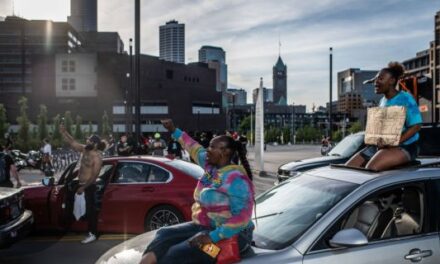
In 2015, Robert Dluhy ’62, a physician at Harvard Medical School (HMS) and Brigham and Women’s Hospital, watched in horror with much of the country as the story of 25-year-old Freddie Gray unfolded on national television. Gray, a black man, had been killed by a serious spinal cord injury after Baltimore police officers ignored his pleas for medical attention as he rode with them, handcuffed and unsecured, to the police station. Like other outraged Americans protesting Gray’s killing at the time, Dluhy was preoccupied with what tangible changes could help create a safer future for the hundreds of Americans who die in police custody each year.
As attorneys announced a fight for justice for Gray following his death, and commentators debated the facts and legal perspectives of the case, Dluhy remained fixated on the moments before Gray’s death. As a medical professional, he was struck by the officers’ refusal to call in medical services for a man in obvious distress. “What he doesn’t need is a lawyer,” his daughter, Leonore, recalled Dluhy saying at the time. “He needed a doctor.”
Dluhy soon learned that Gray did not have any legal right to request and be provided medical care while in police custody, even while in a state of observable crisis—nor indeed did any American in 2015. It’s since then that Dluhy (before his death two years ago), Leonore ’92, his wife Deborah Ph.D. ’76, and a coalition of other Harvard alumni have been working to secure that right for Americans detained, jailed, and incarcerated, thousands of whom die each year because of delayed or denied medical care.
The Medical Civil Rights Initiative, as their group is known, is going state by state across the country and directly to Congress in an effort to pass the Medical Civil Rights Act, which would give anyone experiencing an emergency medical condition during contact with law enforcement officers—from a traffic stop to arrest or incarceration—the right to emergency medical care.
Aside from saving lives, they say, the bill, if enacted, will also benefit nearly every other party involved with such tragedies. People’s right to care will become clearer and easier to assert than it is now, since the patchy application of the Eighth and Fourteenth amendments provides only loose guarantees to “reasonable and adequate care” once in custody. Governments and taxpayers will save billions in settlements and other payouts to the families of those who die while in custody. Law enforcement officers will have a clear duty to address anyone facing a medical crisis: once they summon emergency medical care, it will be up to emergency medical personnel to determine the next steps. That helps officers avoid the liability of exercising their own judgment on whether a person is having a genuine crisis. After all, officers by nature routinely encounter people in some form of distress; it’s difficult, and not their primary expertise, to differentiate who is in medical danger.
As Leonore Dluhy explained in an interview, their bill presents a different approach to recent police reforms meant to increase the accountability and transparency of law enforcement. “This isn’t always about officer misconduct,” she said. “Often this is about a lack of statutory clarity.”
“If I show you body cam [footage]of some of the most prominent custodial deaths and other deaths that you may not have heard about in the country, and I asked you, ‘Do you think that the officer understood that this person was in a medical emergency?’, often the answer is no,” she continued. Yet, if a person in such an emergency has been stopped or detained by law enforcement officers, they are not free, meaning the officer alone is empowered to decide what the subject can do or whether to call emergency medical services. Hence, the initiative seeks to take the survival of subjects out of the hands of law enforcement officers’ discretion by establishing a statutory right to such care.
The argument for their bill seems obvious to the team of doctors—plus a former justice—involved in the initiative. Their ranks include Federman distinguished professor of medicine and medical education Ronald Arky; Julie Ingelfinger ’64, deputy editor at the New England Journal of Medicine; Justice Frederick Brown ’54, LL.B. ’67, Massachusetts’s first African-American appellate judge; and Steve Wright ’64, former chief of medicine at Brigham and Women’s Faulkner Hospital; and the Dluhys. As a group, they’ve been working to educate and advocate to advance their bill around the country, according to Wright—although it has twice failed in the Massachusetts State Legislature.
In an interview, Brown, now retired, said that the group had been frustrated with inefficiencies in the Massachusetts legislature, where bills with significant support are often stalled. Advocates from the initiative also pointed to the difficulty of effectively communicating the need for their bill in light of recent measures many states have already passed promoting police accountability, leaving some convinced that the issue has already been addressed.
Still, the team remains hopeful. After Randy Cox, a black man, was paralyzed two years ago by injuries exacerbated by officers’ reckless treatment, Connecticut passed their bill unanimously in 2023, and it is now law in the state—even though the passage only came after Cox suffered irreparable harm. As a result of the incident, the state ended up paying the largest police misconduct settlement in U.S. history: $45 million. The initiative says cases like these—where enormous costs to individual life and to taxpayers result from lack of medical care in law enforcement interactions—should serve as a clear reason for support.
“You could be driving home and have a stroke,” Leonore Dluhy said. “Would you want an officer to have a legal duty to immediately summon EMS for you? Or do you want to leave it up to the discretion of the officer and to policy?”
She cited a host of cases in which there have been tens of millions paid to settle cases like Cox’s, which have continued at a steady pace. The family of Tyre Nichols, a black man killed by law enforcement after they beat him and failed to deliver immediate care, is now suing the City of Memphis for $550 million. And in a recent verdict, a jury awarded a historic $82 million to the family of Gwendolyn Young, a black woman who died in jail after failing to receive needed medical care. The jury, while emphasizing the tragedy of her death with their verdict, also appeared to recognize a key point Dluhy’s initiative is hoping to make: “if the states don’t fix the law, we’ll just keep paying out.”



